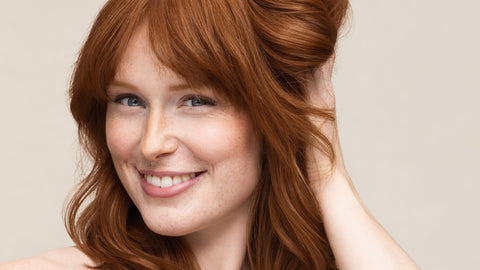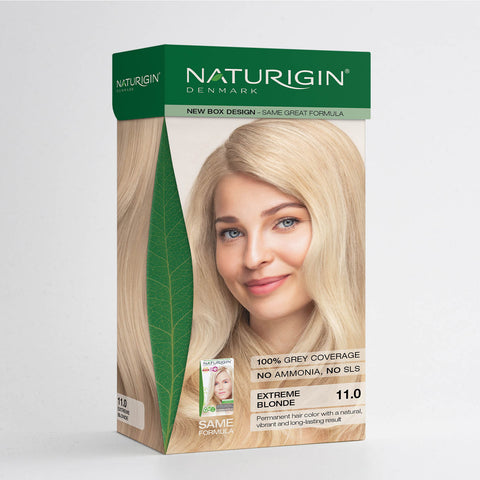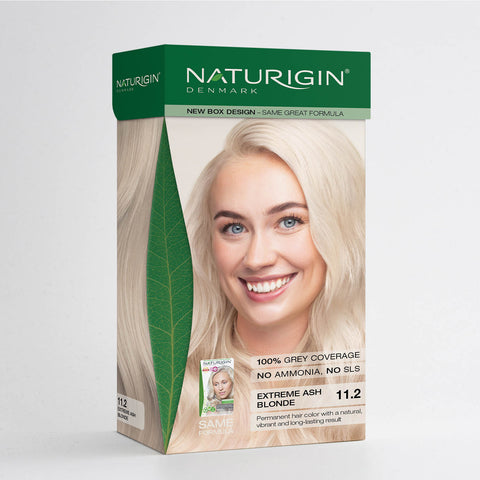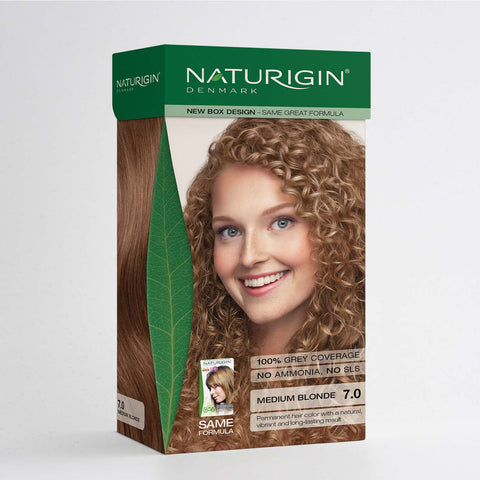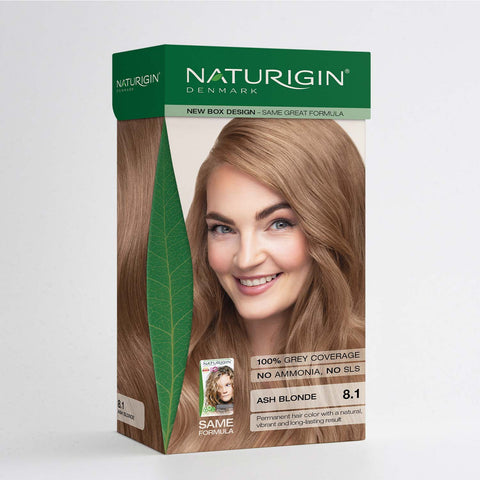Traditional hair dye or henna?
Maybe you've wondered what the difference is between henna hair color and a traditional hair color and what the benefits of each are? You're not alone! Choosing between traditional hair color and henna can be confusing, especially when you're not quite sure what each entails. In this post, we'll dive into the differences between the two so you can make the right choice for your first hair coloring or next refresh.
Traditional hair color
You probably know them from the supermarket shelves. The classic hair dyes, where there is a wide selection of different colors. Many of them have different benefits, but here we will write about the main things to look out for when buying your first hair color.
Ingredient composition:Traditional hair color often contains chemicals such as ammonia, peroxide and PPD (paraphenylenediamine). These ingredients open the hair cuticle and penetrate the hair strands to change the color. At NATURIGIN, we have removed all unnecessary chemicals such as ammonia, silicone, alcohol, SLS and reduced the amount of PPD to avoid damaging the hair. PPD or PTD must be present in a permanent hair color, otherwise the color cannot stay in the hair.
Color range:Traditional hair dyes offer a wide range of colors, from natural shades to the most extreme and creative colors. They are ideal if you want a precise color tone or want to lighten or darken your hair drastically. In addition, you can easily change your hair color as you can dye on top of the color you used before. Unfortunately, this is not possible with henna.
Durability:Hair dyes are often more durable and provide a longer-lasting color. They can cover gray hair effectively and require less frequent touch-ups.
Impact on hair and scalp:Traditional hair color can be harsh on both hair and scalp. Some will experience irritation, dryness or even allergic reactions. It can also lead to damage to the hair, making it frizzy and dry over time. That's why we always recommend choosing a natural traditional hair color that spares your hair from chemicals. Many traditional hair colors on the market have a lot of chemical ingredients to make it cheaper to produce. Hair color with a high number of chemicals often leads to allergies or rashes. Therefore, always make sure to do a background check on the brand you are interested in. At NATURIGIN, our hair dye consists almost exclusively of organic ingredients, in fact, 96.6% of the color comes from organic plants.
Henna color
Natural composition, but not entirely: Henna is a natural colorant extracted from the Lawsonia inermis plant. It is free of chemicals, making it a gentler alternative for both hair and scalp. However, if you want to dye your hair black with henna, chemicals are often mixed in to make the color black. Henna is always red, so if you don't want the natural red henna color, chemicals are often added to create a black color that is permanent.
Color range: Henna primarily provides a reddish tint as mentioned before, but can be mixed with other natural ingredients like indigo or cassia to achieve different shades, such as brown or black. However, it's harder to get accurate colors compared to traditional hair dyes. You also can't go blonde with henna as it can't lighten your hair. The gray hairs can also be a problem as they can be difficult to cover with henna. You therefore need to pay extra attention to the gray areas so that they get some extra color.
Durability: Henna is semi-permanent and fades gradually over time. It cannot be completely removed without the hair growing out or being cut off. It is therefore not possible to dye your hair with a traditional hair dye either, as henna has some metals that interfere with the color. You therefore have to let your hair grow out again if you want to try a new hair color that is not henna. You are therefore locked into this color until your hair has grown back with your natural hair color.
Impact on hair and scalp: The quality of the henna can have an impact on both the outcome you get, but also how your hair and scalp react to the color. If the henna you use hasn't been properly picked and processed, you will experience dry and frizzy hair, which will also create an irritated scalp. It's therefore important to check the brand you're buying to ensure the henna you're buying is safe. In the EU, rules have been made for henna products so that it is safer to use as a consumer.
Which color should you choose?
The choice between traditional hair color and henna depends on your personal preferences and needs. If you're looking for a wide range of colors, long-lasting coverage and variety, traditional hair color will be the best choice for you as you're not locked into a specific color.
If, on the other hand, you want to work a bit more for your hair color and want to get technical with henna, it can be a great way to dye your hair. But you're incredibly locked into the one color you choose, so you need to be 100% sure it's your dream color as you don't have the option to dye it with other things. That's why we always recommend a traditional hair color, as it would be a shame to ruin your hair because the color is not what you wanted.

